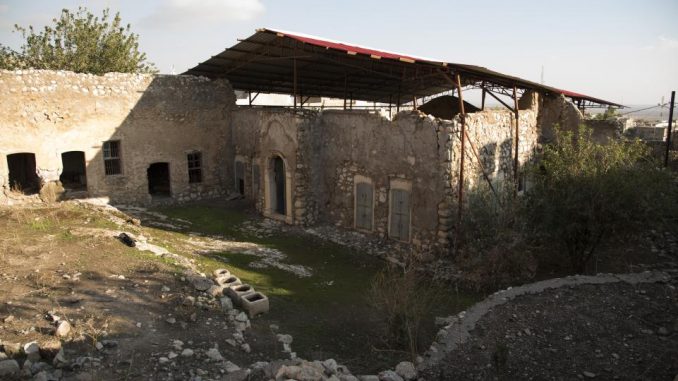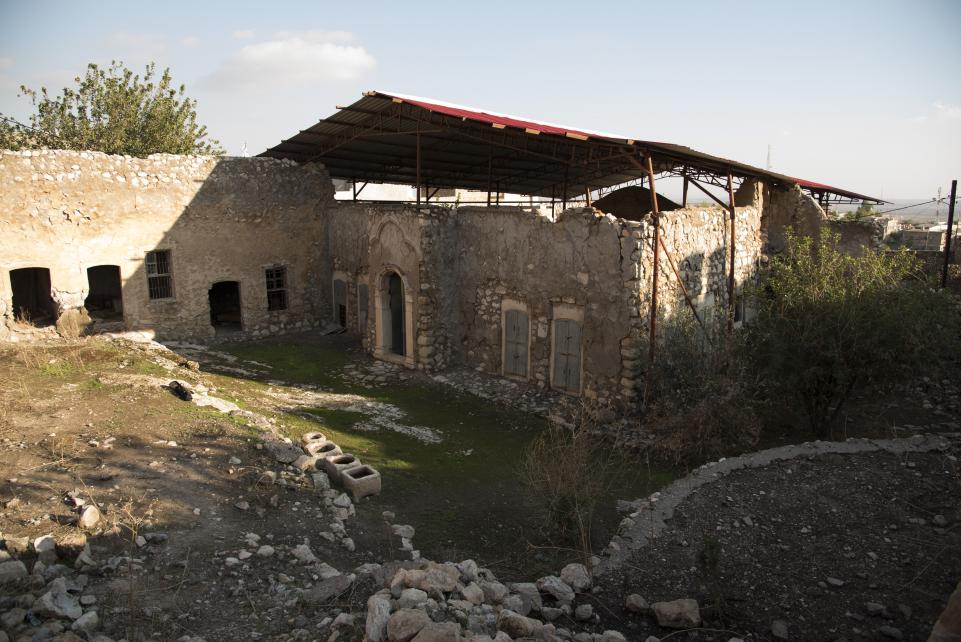
A chance encounter between Sami Solmaz, a Kurdish film-maker, and Jason Guberman, director of Diarna (Digital Heritage Mapping), became a partnership to preserve ancient Jewish history before it vanishes. Feature by Emily Feldman in Newsweek Magazine (with thanks: Boruch):
Solmaz, who was in Iraq to collect footage for his film about ISIS, offered to visit abandoned Jewish villages for Guberman. The two had met in the summer of 2014 at the Center for Jewish History in New York—Solmaz was there to inquire about using the building’s archives to research a documentary about Kurdish Jews, which he would be filming in Syria and Iraq. He wound up in Diarna’s office, where he and Guberman chatted about his interest in Jewish culture.
Solmaz had grown up in Turkey’s southeast, and his grandparents had told him stories about the minorities who no longer lived there—Jews, Armenians, Greeks and Assyrians. By the time Solmaz was born in 1963, Ottoman and Turkish authorities had massacred or deported most of them in campaigns to “Turkify” the nation in its violent early days, a part of his country’s history that he thought about often in his work as a war correspondent and independent filmmaker.
As Guberman listened, he realized he might be able to recruit Solmaz to help Diarna. But doing so would be dangerous. Syria’s civil war was in its third year, and ISIS was taking over major cities and towns in Iraq. Guberman worried that Solmaz could be captured, kidnapped or killed, especially if ISIS—or the Syrian regime—discovered his links to an American nonprofit with a Jewish cause. “We actually tried to discourage him,” says Guberman, “but he wanted to go.” The two men agreed to stay in touch.
What had started as a chance meeting in a quiet museum would soon become a vital partnership—spanning oceans and war zones—to preserve ancient history before it vanishes.
Over the next two and a half years, Solmaz planned multiple trips to Iraq, northern Syria, Turkey, Israel and Greece, always allaying Guberman’s concerns about safety. “Jason, I can go there, I am Kurdish,” he’d tell him. Or “I’m a war correspondent, don’t worry.”
The arrangement has been mutually beneficial. Solmaz hikes mountains, cajoles locals and travels to war zones to find the endangered sites Diarna wants to preserve on the internet. In return, Diarna pays him for photographs, videos and reports, which Solmaz often finds useful for his projects.
When Diarna launched in 2008, most Jewish synagogues, schools and cemeteries in the Middle East and North Africa had been out of use for decades, and many had fallen into disrepair. Most of the estimated 1 million Jews who lived between Morocco and the Arabian Sea abandoned their homelands to escape anti-Semitic violence in the 1950s and ’60s. Now wars in Yemen, Iraq and Syria, along with the emergence of ISIS, which has been attacking ancient sites with pickaxes and dynamite, pose a real threat to preserving the Middle East’s ancient history.
As destroying sacred sites has become increasingly common in the Middle East, analysts, countries and even some militants have come to see the costs of destroying them. In September, an Islamist militant became the first person convicted of a war crime for destroying cultural and religious sites in Mali. At his trial at the Hague in the Netherlands, Ahmad al-Faqi al-Mahdi, who was sentenced to nine years in prison, urged other combatants to refrain from destroying cultural sites, saying such acts “ are not going to lead to any good for humanity.”


Leave a Reply